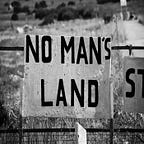What does it mean to be a centrist now?
Just a few years ago, and it seems much longer, the question that defined every election was ‘which party would win the centre ground?’. Blair won landslides that way, Cameron brought the Tories back from the wilderness that way, ‘Cleggmaina’ came from the “liberal centre ground”. Everyone was a centrist then, it feels no one is now.
In 2019 it is about the political extremes. Centrists are no where near power and it seems the public have long forgotten why they ever voted for them. Social conservatives, alt-right populists, new left, old left all seem to be in ascendancy. As I wrote recently, the Libdems and the Brexit Party are on their own extremes on the Brexit question. These are febrile times, not times for moderation. All this raises a fundamental challenge for centrists. If they are to return to the fold they need to remind people of what they are for. Yet even a basic articulation of what that is can be illusive.
A dispostion not an ideology.
One of the challenges of defining centrism is that it tends to be informed by its relationship to the other political poles. We know leftists are for a large state, the right for a free market. The answer centrism gives seems to be to split the difference between the two. The reality is, on this characterisation, centrism is not so much a political ideology but a disposition. An attitude that lends itself to triangulating between the more extreme views to find a consensus, to bring people together. As such ‘centrist’ can be interchangeable with the word ‘moderate’. It tells you what approach a centrist takes, it does not say what their goals are.
A third way?
A description with more substance has to say something about the fundamental economic questions. The centre has tended to be something other that either an anathema for or blind faith in the free markets. Blair and Clinton would sometime talk about this in terms of the ‘third way’. Finding a better balance between market and state. In turn this often couples itself with a primacy for the equality of opportunity, as supposed to equality on the left and opportunity on the right. It is perhaps telling of the fall from grace of the political centre that we hear far less talk in politics these days of equality of opportunity, of social mobility and so on.
More fundamentally, the third way made sense in the 1980s-2010s where free market capitalism had won the argument over state intervention. As we approach the 2020s capitalism feels as if it is nearing crisis point. Proponents of a third way need to know what their answer to that is. Such discussion inevitably bring us back to a politics of values — not only economic but social as well.
Liberalism no more?
The centre ground for a long time was to a large extend ‘Liberal’. Pro-freedom, and seeking to allow individuals to flourish on their own terms. This tended to mean being liberal on social issues and international in outlook. But recently in Britain liberals (think Blarites and Libdems) have taken a polarising position on Brexit. It seems hard now to be both by disposition a moderate, looking to bring people together, and a Liberal when it comes to Brexit. The same is true for many of the issues of the new identity politics. Such is the vitriol on each side of those debates.
Something new?
Moderates like me who want the chance of a broad church brought together in the centre-ground, have much to ponder and little in the way of encouragement in the febrile politics of 2019. Yet asking exactly what a renewed centrism could be is the start of any recovery for centrism.
By Steve O’Neil.
